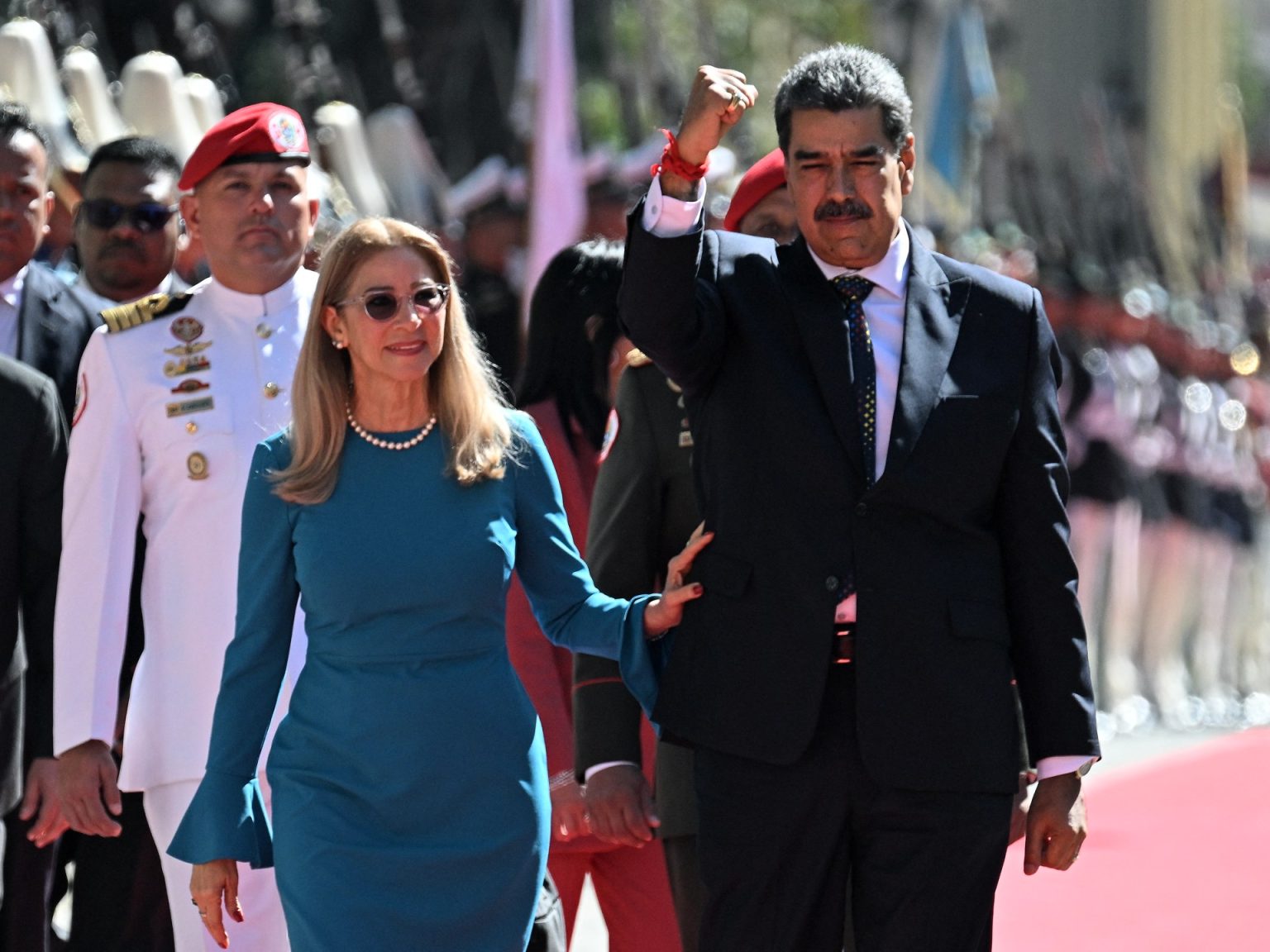Paragraph 1: The Contested Inauguration and International Backlash
Nicolás Maduro’s inauguration for a third six-year term as Venezuelan president has sparked a firestorm of international controversy and renewed domestic tensions. The July 28th election, marred by allegations of voter fraud and a lack of transparency, saw Maduro declare victory with 51% of the vote. However, his opponent, Edmundo Gonzalez, also claimed victory and accused Maduro of rigging the election. This disputed outcome has further exacerbated the political and economic crises gripping the nation, with the international community, led by the United States, recognizing Gonzalez as the legitimate winner and condemning Maduro’s continued rule. The inauguration ceremony, held on Friday, was met with protests and international condemnation, setting the stage for a further escalation of the Venezuelan crisis.
Paragraph 2: Maduro’s Rise to Power and Authoritarian Grip
Maduro’s trajectory to power began following the death of his predecessor, Hugo Chávez, in 2013. Inheriting Chávez’s socialist legacy, Maduro has overseen a period marked by increasing authoritarianism, economic mismanagement, and widespread social unrest. Accusations of human rights abuses, suppression of political dissent, and electoral manipulation have characterized his tenure, solidifying his control over the government and its institutions. His 2018 re-election was similarly contested, with key opposition figures barred from participating, further undermining the democratic process and fueling international criticism. This pattern of disputed elections and suppression of dissent has become a defining characteristic of Maduro’s rule, further isolating Venezuela on the global stage.
Paragraph 3: The Opposition’s Struggle and the Rise of Edmundo Gonzalez
The Venezuelan opposition, facing consistent challenges from Maduro’s government, has struggled to unite and effectively challenge his authority. However, the emergence of Edmundo Gonzalez as a prominent opposition leader offered a renewed sense of hope. Gonzalez, a former diplomat, garnered significant support during the 2023 presidential campaign, presenting a compelling alternative to Maduro’s increasingly authoritarian rule. Despite the contested outcome of the election, Gonzalez’s defiance and international recognition have galvanized the opposition movement, providing a focal point for resistance against Maduro’s regime.
Paragraph 4: International Pressure and the US Stance
The international community, particularly the United States, has taken a strong stance against Maduro’s government, imposing sanctions and diplomatic pressure in response to his authoritarian practices and alleged human rights violations. The US has been a vocal supporter of the Venezuelan opposition, recognizing Juan Guaidó as the interim president in 2019 following another contested election. Following the July 2023 election, the US swiftly recognized Gonzalez as the legitimate winner, further escalating tensions with the Maduro government. The US continues to call for free and fair elections in Venezuela and the restoration of democratic governance.
Paragraph 5: The Humanitarian Crisis and Exodus
Venezuela’s ongoing political and economic turmoil has triggered a devastating humanitarian crisis, forcing millions to flee the country in search of safety and stability. The collapse of the Venezuelan economy, coupled with hyperinflation, food shortages, and a lack of essential services, has created a desperate situation for many citizens. This dire situation has led to a mass exodus, with an estimated 7.7 million Venezuelans seeking refuge in neighboring countries and beyond, placing a significant strain on regional resources and stability. The humanitarian crisis continues to worsen, highlighting the severe consequences of Maduro’s policies and the urgent need for a resolution to the political impasse.
Paragraph 6: The Path Forward and Uncertain Future
The future of Venezuela remains uncertain, with the country deeply divided and facing significant political and economic challenges. Maduro’s inauguration for a third term, despite international condemnation and domestic protests, signals his determination to maintain power. The opposition, led by Gonzalez, faces the daunting task of mobilizing continued resistance against a deeply entrenched regime. The international community plays a crucial role in supporting the Venezuelan people’s aspirations for democracy and providing humanitarian assistance to those affected by the ongoing crisis. The path forward requires a concerted effort from all stakeholders to find a peaceful resolution to the political conflict and address the urgent humanitarian needs of the Venezuelan people.

